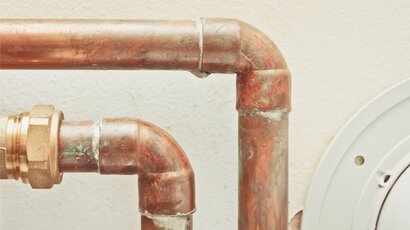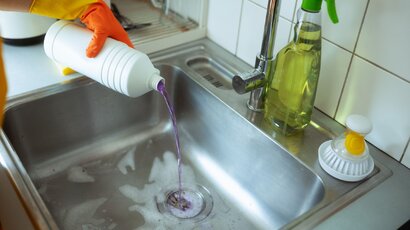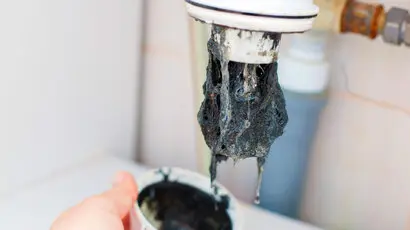Blocked drains might seem like a minor inconvenience, but they can pose serious health risks. According to a study by the World Health Organisation, poor household sanitation, including faulty drainage, contributes to the spread of diseases that affect millions each year. That clogged sink or sluggish shower drain? It could be harbouring bacteria you definitely don’t want near your family.
Common culprits include grease build-up, food scraps, hair, and soap residue. Add in environmental factors like invasive tree roots or stormwater overflows, and your drainage system can quickly become a ticking time bomb.
What many don’t realise is that a blocked drain can directly impact not only personal health but also the surrounding environment. Left untreated, these blockages become breeding grounds for bacteria, mould, and pests.
What Causes Drains to Block in the First Place?
It doesn’t take much to clog a drain, and unfortunately, many of us unknowingly contribute to the problem. Every day, items like grease, oil, food particles, soap scum, and hair gradually collect inside pipes. When these substances harden or clump together, they create stubborn blockages that disrupt water flow.
![]()
Then there are items that should never go down the drain, wet wipes, sanitary products, dental floss, and even stray toys, all of which can cause instant or long-term damage. These foreign objects often get lodged and trap other debris, accelerating the problem.
But it’s not just indoor habits to blame. Tree roots can infiltrate underground pipes searching for moisture, while heavy rainfall can overload stormwater systems, pushing debris into places it doesn’t belong.
Over time, even small amounts of waste can build up to create a serious blockage. And when these blockages trap moisture and organic material, they don’t just sit quietly; they rot, smell, and become a health hazard.
What goes down the drain doesn’t just disappear. If ignored, it can come back in ways you’d rather avoid, affecting your indoor air quality and potentially your health.
The Health Risks You Can’t Ignore
Blocked drains don’t just affect plumbing, they can seriously impact your wellbeing.
One of the most common issues is the growth of mould and mildew, especially in damp areas where water can’t drain properly. These fungi release spores into the air, which can trigger asthma, allergic reactions, and chronic respiratory issues, particularly in children or the elderly.
Stagnant water in blocked pipes is another major concern.It creates the perfect breeding ground for harmful bacteria and mosquitoes, which can carry diseases such as Ross River virus and dengue fever. You might not see the problem immediately, but the risks build over time.
Then there’s the smell. Foul odours from blocked drains aren’t just unpleasant, they signal decaying organic matter and possible sewage exposure. Breathing in this air can affect your indoor air quality and cause headaches or nausea.
In more severe cases, blocked pipes can back up, sending contaminated wastewater into sinks, bathtubs, or even onto floors. This kind of exposure increases the chance of coming into contact with dangerous pathogens like E. coli, Salmonella, or norovirus.
Even airborne contaminants from a blocked drain can cause skin irritations, eye discomfort, or worsen existing health conditions. Ignoring a slow drain today could mean putting your family’s health at risk tomorrow.
What Happens Beneath the Surface?
It’s what you can’t see that often poses the biggest threat. Inside a blocked drain, bacteria and pathogens begin to thrive. Harmful microorganisms like E. coli, Salmonella, and even Legionella can develop in stagnant water, especially when organic matter is left to rot.
As waste breaks down, it releases gases, with hydrogen sulphide being one of the most common. This gas doesn’t just smell like rotten eggs; in higher concentrations, it can cause nausea, dizziness, and even long-term fatigue if inhaled regularly.
![]()
One of the more worrying issues is cross-contamination. When wastewater backs up, there’s a risk it could mix with clean areas like your kitchen or bathroom, bringing harmful bacteria into contact with food preparation spaces or personal items.
Even if the water seems to be draining slowly rather than completely backing up, that sluggish flow could indicate a growing problem deeper in your plumbing. These slow-moving clogs still support bacterial growth and gas release, silently affecting the air you breathe and the safety of your space.
Signs Your Blocked Drain Is Becoming a Health Threat
A clogged drain doesn’t always come with flashing warning lights but your home will give subtle hints when something’s not right. Ignoring them could come at the cost of your health.
1. Slow Drainage That Won’t Go Away
If your sinks, showers, or toilets are draining slower than usual, don’t brush it off. Persistent sluggishness can mean a serious build-up lurking deeper in the pipes.
2. Smells That Linger After Cleaning
A musty or unpleasant odour in the bathroom or kitchen, especially if it returns quickly after cleaning, often signals trapped waste and bacterial growth inside the drain.
3. Odd Noises from Pipes
Gurgling sounds coming from your drains or toilet might sound harmless, but they usually mean air is struggling to pass through a blockage, which can cause pressure issues.
4. Unexplained Health Symptoms
Frequent headaches, skin irritation, or breathing difficulties with no clear source could be linked to poor air quality caused by drain-related bacteria or mould.
5. Flies and Cockroaches Hanging Around
Seeing pests in damp areas? These critters love the moist, rotting conditions created by blocked drains. Their presence is often a red flag for something festering out of sight.
Don’t Do This: A Common Mistake That Worsens Drain Health
Reaching for chemical drain cleaners might feel like a quick fix, but it’s often the worst thing you can do. These harsh solutions contain corrosive ingredients that can eat away at your pipes, especially older plumbing made from metal or PVC.
Even worse, they rarely address the actual cause of the blockage. Instead, they push clogs deeper into the system, where they become harder and more expensive to remove. The fumes released can also be harmful to inhale, particularly in confined bathroom spaces.
Instead of pouring toxins down your drain, it’s best to address the root of the issue properly. A professional assessment can save your pipes and your health from unnecessary risk.
How to Keep Drains Clear and Your Home Safe
Keeping your drains healthy doesn’t have to be complicated, but it does take a bit of ongoing care. With the right habits and a little know-how, you can avoid blockages, nasty smells, and hidden health risks. Here’s how to maintain clean, free-flowing drains and protect your home from unwanted plumbing problems.
![]()
1. Stay Ahead with Routine Inspections
Prevention always beats a plumbing emergency. One of the most effective ways to avoid blocked drains is by scheduling regular inspections with a licensed plumber.These check-ups can uncover hidden issues like slow build-ups or cracked pipes before they become full-blown health hazards.
2. Smart Habits That Make a Difference
A few simple changes around the home can keep your drainage system in good shape. Install drain strainers in kitchen sinks, bathroom basins, and showers to trap hair, soap residue, and food scraps. These filters are inexpensive and easy to clean but prevent most everyday blockages.
3. Dispose of Waste the Right Way
Never pour fats, oils, or greasy leftovers down the sink. Once cooled, they solidify and cling to pipes. Instead, collect them in a jar and bin them. Also, avoid flushing wipes, sanitary products, and coffee grounds; they belong in the rubbish, not your plumbing.
4. Try Natural Drain Maintenance
Each week, pour a kettle of hot water followed by a cup of vinegar down the drain. This eco-friendly mix helps dissolve grime without corroding pipes or polluting the environment.
5. Call in Help Before It’s Too Late
Noticing bad smells or slow drains? Don’t wait. Getting expert help early can save you from bigger issues and protect your family’s health.
Get Expert Help Before Drain Problems Get Worse
Need help with a blocked drain? Don’t wait until it affects your health. Reach out to WP Plumbing for fast, professional drain clearing services in your area. Our team handles everything safely and effectively so your home stays clean and worry-free.
Blocked drains can pose serious health hazards when ignored. Whether it’s bacteria build-up, bad smells, or recurring pests, our expert plumbers can pinpoint the problem and clear it without damaging your pipes. We use safe, modern methods that protect both your plumbing and your indoor air quality.
From routine inspections to emergency callouts, we’ve got your drainage covered. Let us help you keep your home safe and hygienic, without the hassle. Get in touch today and flush your worries away with confidence.






